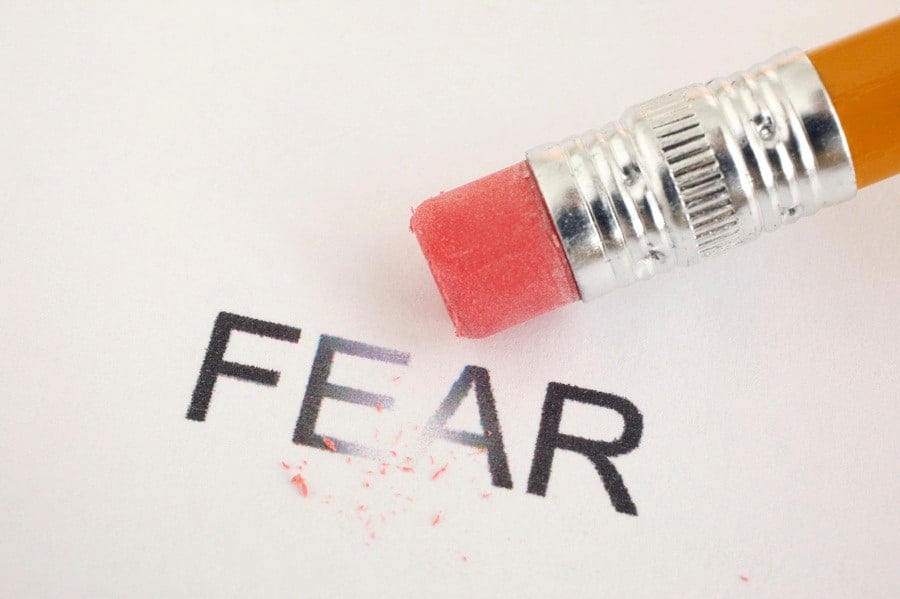Taking a lead from global markets, U.S. stocks opened Monday under the influence of classic fear-and-greed forces that should only matter if you don't have a plan. That said, additional losses as the week unfolds should come as no surprise.
“Corrections always look worse when they're happening, but they shouldn't surprise you,” said Douglas Cote, chief investment strategist at Voya Financial Inc. “This just proves that every investor should have a plan, and now isn't the time to try and make one.”
Investor anxiety that
drove both the S&P 500 Index and Dow Jones Industrial Average down more than 3% on Friday, carried over to open Monday trading with a near-immediate 1,000-point drop in the Dow.
The 5.5%
pullback within the first few minutes of morning trading shrank to a 2% decline within the first hour of trading, while volume on the New York Stock Exchange reached 500 million shares, more than half the average daily volume.
“It is a lot of panic selling, which is the worst thing you can do in any market,” said Phil Blancato, chief executive of Ladenberg Thalmann Asset Management.
CASH ON THE SIDELINES
“This is very traditional trading pattern, especially when we've had a weekend like this to deal with,” he added. “But seeing a 600-point swing (upward) in less than an hour after the Dow is down 1,000 points tells you that there is still cash on the sidelines and that the data doesn't support this kind of correction.”
The global market rout is still being pegged to
China's dramatic currency devaluation, as part of a desperate move to help prop up its slowing economy.
“The stock market selloff started as a repricing on account of growing evidence of economic weakness in the emerging world and a consequent slowdown in global growth,” said Mohamed El-Erian, chief economic advisor at Allianz.
“It accelerated as traders realized that policy circuit breakers would not materialize immediately, especially as they needed to come, in particular, from China,” he added. “And it became disorderly when deleveraging, fueled by contagion and overshoot, took hold of the markets.”
Mr. Cote took more direct aim at the effort by China's central bankers to protect the home turf.
“This is all about the China slowdown, and China's mishandling of their slowdown with the unilateral currency devaluation,” he said. “Central banks tend to protect their markets.”
WORLD BANKING ON CHINA GROWTH
Bob Rice, chief investment strategist at Tangent Capital, said the violent equity market pullbacks over the past week are proof that the entire world was banking, one way or another, on China's growth story.
“One reason the selloff has been so bad is so many people have made directional and leveraged bets on China,” he said. “Nobody can see the future, but I think it will be a long while before valuations get back to a place where retail investors are going to use their spare cash to get back in.”
While these kinds of global market pullbacks tend to spread across all asset classes, Mr. Rice pointed out that diversification of strategies still works.
“The typical argument is that correlations among asset classes always go to one in a crisis, but what doesn't go to one is strategies,” he said. “Global macro is a great strategy that doesn't go to one in a crisis like this. You can't just go long-only in this world.”
The upside of hedging strategies stands out with a general comparison of long-only mutual funds with alternative-strategy funds, as tracked by Morningstar Inc.
Over the past 30 days, through Friday, large-cap growth funds averaged a 7.7% decline, small-cap growth funds were down 7.5%, and large-blend was down 6.7%.
Meanwhile, among the six alternative-strategy fund categories, the worst performer over the same period was a 3.4% drop for long-short equity funds.
Bear market funds had a predictable gain of 12.5%, and managed futures funds were up 60 basis points. Market neutral funds were down just 63 basis points.
“It's just math; alts have to do better if they have any significant short position right now,” Mr. Rice said.
Bradley Alford, manager of the Alpha Opportunistic Alternatives Fund (ACOPX), said downside protection is what alternatives preach and they should be able to deliver in times like these.
His fund is down just 60 basis points over the past 30 days.
“Right now we're adding money to some of our defensive positions,” he said. “Nobody is going to make money in this environment, but our job is to lose less money.”







